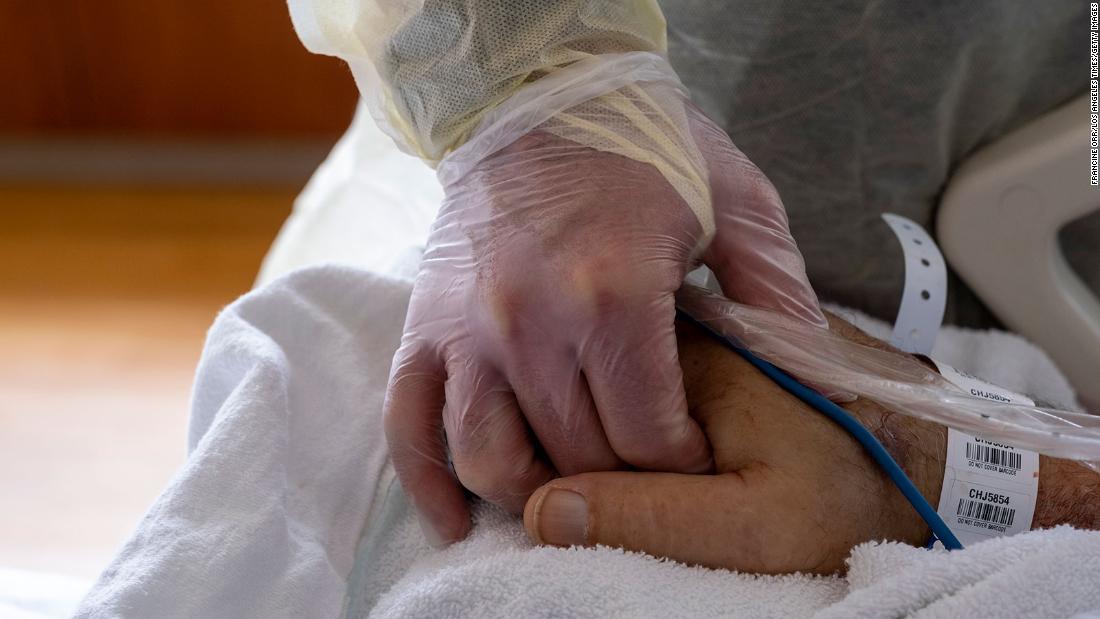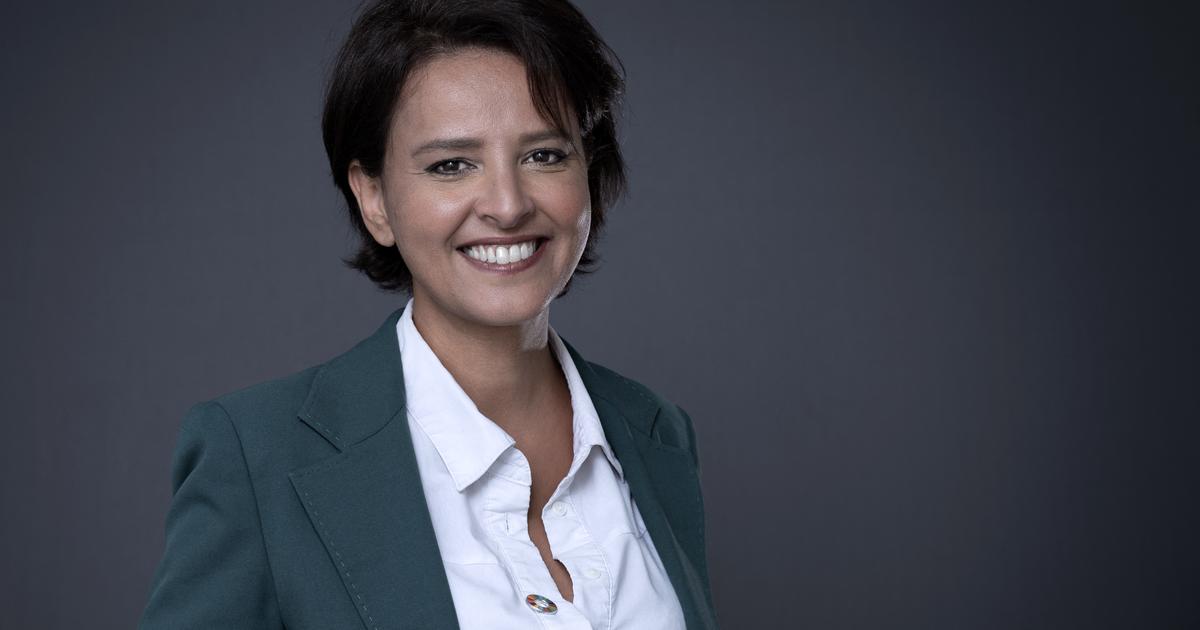He died of a treatable illness while waiting for an ICU 4:10
(CNN) -
Hospitals across the United States are facing a crisis.
Until this Monday morning, more than 96,000 hospital beds were filled by covid-19 patients nationwide, which contributes to 77% of beds being in use in all hospitals, according to data from the Department of Health and US Human Services About 80% of intensive care unit (ICU) beds are in use.
In some places, hospitals are closer to reaching the capacity limit than in others.
In Arkansas, Governor Asa Hutchinson said in a briefing last week that there are only 23 ICU beds left in the entire state.
"That is closer than we would like, but better than it has been. So we continue to monitor," Hutchinson said, adding that 27 new ICU beds will be added this month.
In Kentucky, Governor Andy Beshear exposed last week on CNN the severity of the spread of Covid-19 in his state, saying that while hospitals are not yet at the point of having to make difficult decisions about rationing the attention, "we're right at" or "fast approaching that point."
Should the US start vaccinating children under 12?
1:20
"We are in a really difficult situation, Kate," he told CNN's Kate Bolduan.
"We've called in the FEMA strike teams, we've called up the National Guard, we've deployed nursing students across the state, we've taken over the testing of hospitals just to free more people."
A patient with heart problems died after not being able to get an ICU bed in 43 hospitals.
His family pleads that people get vaccinated against covid-19
And in Alabama, a grieving family has called on others to get vaccinated after Cullman, Alabama resident Ray DeMonia died about 200 miles from his home in a Mississippi hospital because there were no beds. ICU nearby.
Her daughter Raven DeMonia told The Washington Post her story on Sunday.
advertising
Health care rationing is nothing new
When hospitals run out of beds or staff are short, tough decisions have to be made about which patients are the first to receive care.
In general, hospitals and healthcare systems have plans in place to cope with excess patients and make those difficult decisions.
"All hospitals and health systems have plans to deal with an increase in patients. These plans can include actions such as adding beds, even in non-traditional areas of care in a hospital such as a cafeteria or a parking lot, changing patients between hospitals, and working with their state and local health departments to find other sites for care, "wrote Akin Demehin, policy director for the American Hospital Association (AHA), in an email. to CNN on Friday.
Increased stress and depression due to covid-19 1:22
"Sometimes this includes referring patients to hospitals in nearby states that may have the capacity to treat them," Demehin wrote.
"Another option that some hospitals have taken is to reduce, or postpone, so-called elective procedures that are not urgent and can be safely delayed for some time."
A New York hospital will pause deliveries due to the number of covid-19 vaccine mandate waivers
However, in most cases, the capacity of hospitals does not only refer to the number of beds that are filled, since the hospital can usually add beds, but many centers are much more concerned with having sufficient staffing to care for patients, according to Demehin.
"Hospitals and healthcare systems entered the COVID-19 pandemic already facing a shortage of skilled caregivers, and the last 18 months have exacerbated it," Demehin wrote, adding that the AHA has asked the Biden administration to work as a partner in developing strategies to address the healthcare workforce shortage.
In general, decision-making around the rationing of care can be different depending on the type of medical facility: a hospital or a private practice.
"There are different decisions whether it's a doctor's office or an emergency room," Art Caplan, a professor of bioethics at Langone Health University in New York, told CNN.
She lost her husband to covid-19, now she fights in favor of vaccines 1:56
"You do not have the right to be treated by a primary care doctor. There is still no right to health care that way: the doctor has the ability to refuse," Caplan said, adding, for example, that some doctors might refuse to accept Medicaid as insurance for a patient or they could refuse to treat patients who have not received certain vaccines because that patient could pose a risk to the doctor or the health of other patients.
However, "in the emergency room there is a federal law that says you have to accept anyone, even if they don't have money, and stabilize them. It's called EMTALA, and it's been around for a long time," Caplan said.
"Rationing healthcare is not new to the US healthcare system," he added.
"What's new is covid, but not rationing."
Who gets a bed in the ICU?
Hospitals with emergency departments are required by the Emergency Medical and Labor Treatment Act or EMTALA to provide a medical review to anyone who comes to the emergency room and requests care.
The law also prohibits hospitals with emergency departments from refusing to examine or treat people with emergency medical conditions.
Now, during the pandemic, many of the COVID-19 patients that fill hospital beds are not vaccinated.
EMTALA's obligations remain in force.
"Hospitals generally don't consider why a seriously ill patient is there," Caplan said.
"The way it could become relevant is if it is thought to be a predictor of a poor outcome."
As hospitalizations rise, some U.S. hospitals are forced to cut back on their care
For example, if a hospital has few beds or mechanical ventilators, it may prioritize the care of patients who are considered to be more likely to respond to care and survive, which means that a 26-year-old patient with covid -19 with no underlying health conditions could be prioritized for care over a 90-year-old patient with lung failure and other medical problems, Caplan said.
Is it the fault of the vaccine if you get covid-19 still vaccinated?
1:09
"Or, if not being vaccinated and having lung failure makes you have a worse chance of survival than someone who just comes in with asthma and lung problems but is vaccinated," Caplan said.
"Many places would prioritize the vaccinated asthmatic patient over the unvaccinated lung failure patient. What they evaluate is the outcome and the likelihood of success."
In hospitals that are so overwhelmed that they have to ration care, those decisions shouldn't be based on whether or not a person decided to get vaccinated against COVID-19, Dr. Anthony Fauci said Thursday.
"If you are wondering whether to prefer a vaccinated person over an unvaccinated person, that is something that is always widely discussed, but in medicine I know that someone is not prejudged for their behavior," said Fauci, director of the National Institute of Allergies and Infectious Diseases, to CNN's Anderson Cooper.
"You don't do that in medicine," Fauci said.
Fauci added that the decision on where to direct the "scarce resources" should be based on a "medically sound" reason, "not on a punitive basis for someone's behavior."
Without medicines or beds, doctors at a hospital in Guatemala say they cannot treat patients with covid-19
"We are in a situation of limited resources"
Throughout the pandemic, Covid-19 has put the American healthcare system to the test, and hospitals continue to face difficult decisions about which patient has priority when staff are short and beds are full.
"We are already making those decisions and they are very difficult decisions. I work in the intensive care unit. Many people have serious illnesses, but not illnesses in which they are going to die immediately, but serious illnesses in which they need an operation and some of These operations are so serious that after surgery, they need to be in the intensive care unit for a day or two: replacement of a heart valve, surgery for serious cancers like pancreatic cancer, "Dr. Steven Brown said Thursday , a critical care pulmonologist at the Mercy Virtual Care Center in San Luis, to CNN's Ana Cabrera.
"If the intensive care unit beds are all full of patients who are on ventilators due to their pneumonia, the surgeries have to be postponed," Brown said.
"We have situations where people can come to the hospital with a heart attack, and they have to stay in the emergency room for long periods of time waiting for a bed to open."
In these 5 states there are less than 10% of beds in ICUs while covid-19 overwhelms hospitals
Unfortunately, in some cases, the fact that a bed is available implies that the patient who occupied it died.
Is the booster dose key to ending the pandemic?
5:32
"It's a sad situation that we really haven't seen in American history in a long, long time," Brown said.
"We are in a situation of limited resources now, and when you have limited resources, we are in situations of triage, and some people can die as a result of this."
- Holly Yan, Rebekah Riess, Bonney Kapp and Lauren Mascarenhas of CNN contributed to this report.
Covid-19 Hospitals in the United States









